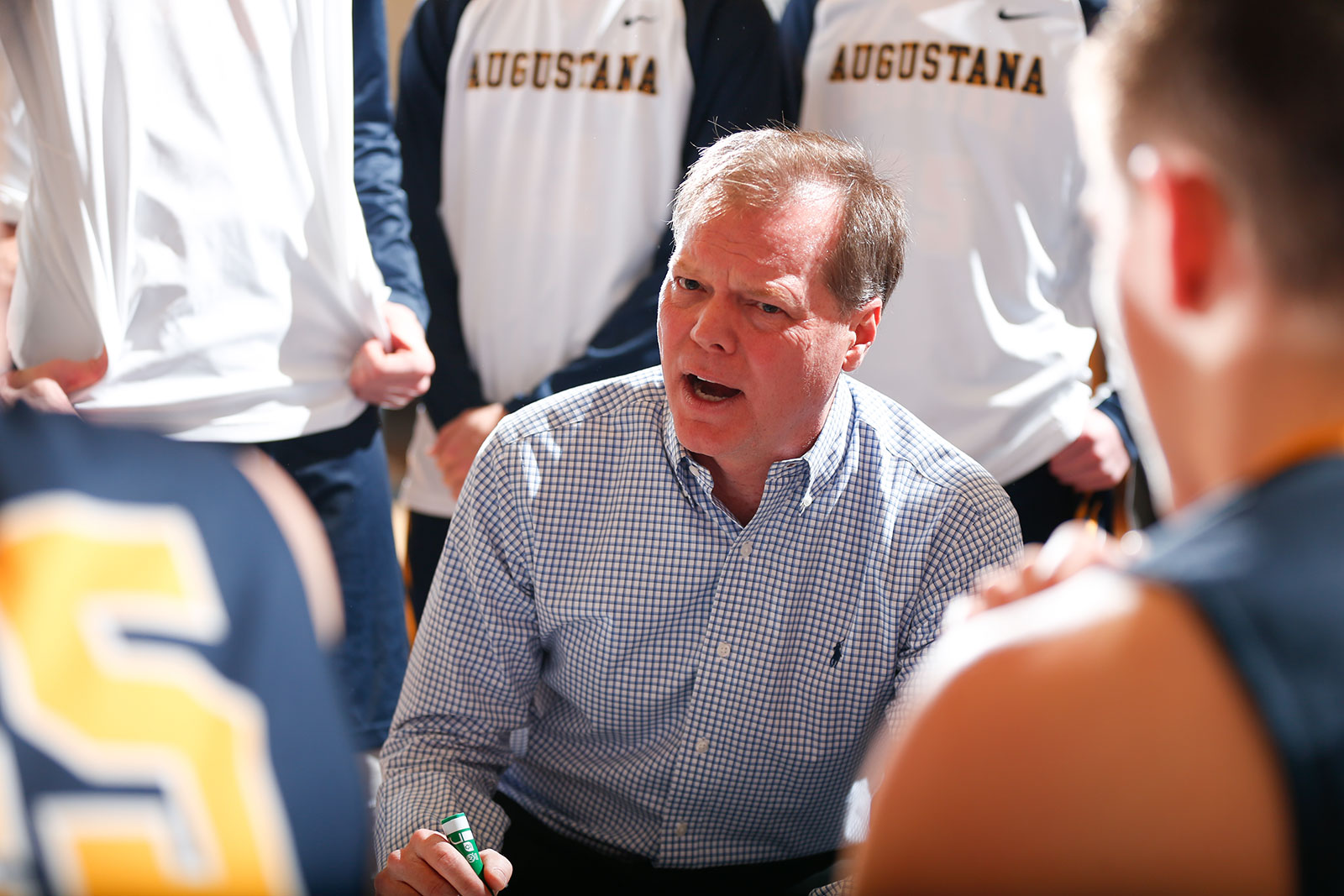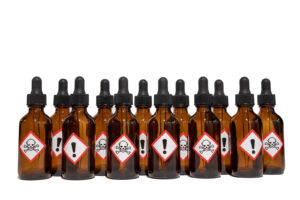“You will probably get prostate cancer, but it won’t kill you,” Dr. Brian Anderson of Moline, Illinois told former Augustana College head basketball coach Grey Giovanine. At the time, Giovanine was just in his early 40s.
In 2014, Giovanine witnessed his father’s death from pancreatic cancer. Gerald “Chips” Giovanine, a Hall of Fame high school basketball coach in Illinois, had won an earlier battle with prostate cancer in 2000. Coaches understand statistics. The likelihood of prostate cancer was highly probable for coach Grey.
According to the American Cancer Society, prostate cancer is the second most common cancer in men. Early detection is key to survival. Zerocancer.org projects a nearly 100 percent five-year survival rate, a 98 percent 10-year survival rate and a 96 percent 15-year survival rate with early detection.
Fall in Illinois brings crisp air, warm cider and the start of basketball practice. For Giovanine, planning a winning season included a routine annual physical. However, 24 hours later, Giovanine received a call from Anderson informing him that his prostate-specific antigen (PSA) counts had doubled, a significant change requiring investigation. Since his late 30s, Giovanine had been getting regular checks for changes through the PSA blood test.
“When I saw the call on my cell phone, I knew what it was,” Giovanine says. But Giovanine needed an MRI to find out more.
Giovanine ruminated endlessly over one question—‘Do I have it or not?’
After checking out his options, he selected Dr. Paul Gellhaus of Iowa City Hospital for his biopsy. Choosing Iowa City ensured access to the latest high-tech advancement for a “fusion biopsy.” Fusion-guided biopsies are led by areas on the patient’s MRI known as hotspots, requiring less sampling than traditional randomized biopsies.
“I was at lunch with my sister when I saw Dr. Gellhaus’ number come up and I knew, I just knew it,” Giovanine says. Gellhaus had his biopsy results and told him he had cancer
“It was a gut kick,” Giovanine recalls.
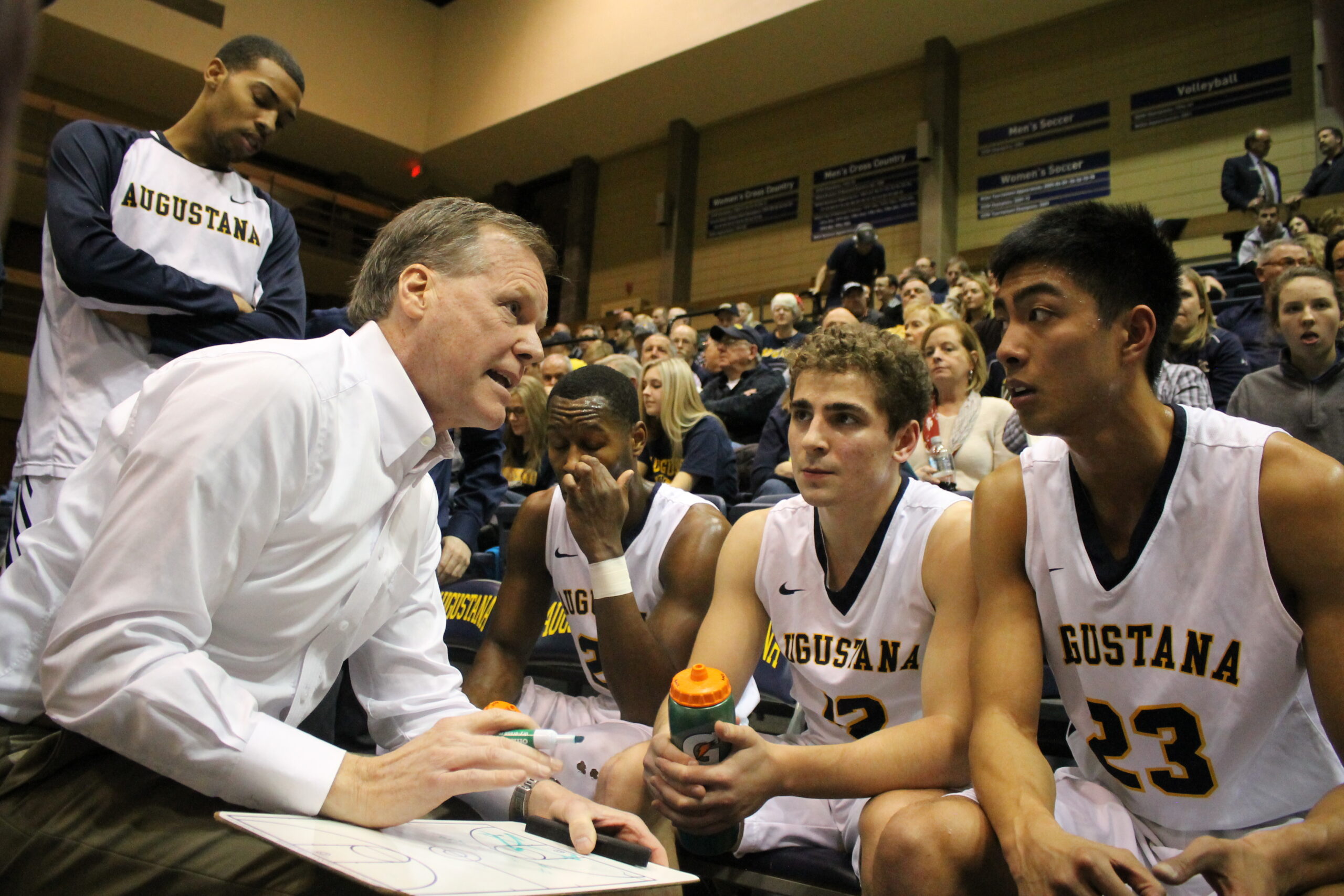
Preparation Is Key
Prior to his diagnosis, Dr. Bob Tallitsch, a friend and professor in the pre-med program at Augustana College, handed Giovanine a copy of “Guide to Surviving Prostate Cancer” by Dr. Patrick Walsh. Walsh is a urologist and pioneer in prostate cancer at Johns Hopkins who developed a surgical approach sparing certain nerves to reduce impotence and incontinence, important factors for Giovanine.
Giovanine’s daily devotional was the book “The Prostate Monologues” by Jack McCallum of Sports Illustrated. Witty and honest, “The Prostate Monologues” bares McCallum’s journey with prostate cancer. Giovanine read it cover to cover. “The more knowledgeable you are, the less fearful you are. You have more control over the process,” Giovanine says.
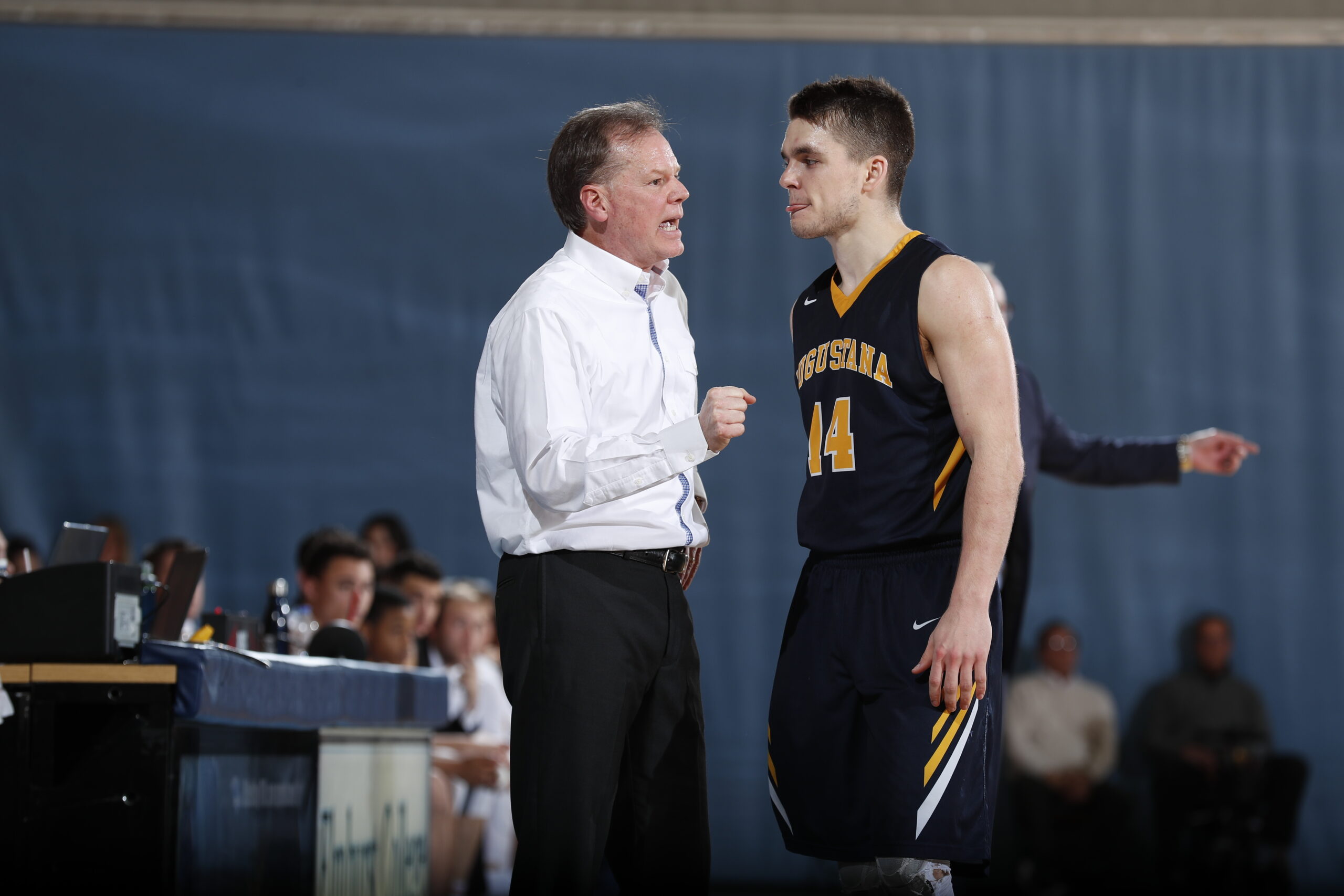
Know Your Opponent
Hoping to win the conference championship, Giovanine convinced his oncologist, Dr. Matthew Tollefson from the Mayo Clinic, to postpone surgery until after the last game. Tollefson reassured him they had a two-week window, so he could wait.
Every night, preparing as much for his surgery as he did for the games, Giovanine watched surgeries on the internet, read books, talked with other cancer survivors and asked questions. Giovanine and his wife Kelly prayed a lot and felt secure. He sat with his three sons, all in their 20s, and told them, “I have a plan. I’ll be ok.”
Cancer was his constant opponent until he stepped on the court for practice. “For two hours every day, I would forget about the cancer,” he says. “The games can be tough, a giant 90-minute migraine. But when you’re in practice or you’re watching films or traveling with the team or having a pre-game meal—those are all really pleasurable experiences for me,” he says.
The celebrated UCLA basketball coach John Wooden once shared a similar sentiment. “In the end, it’s about the teaching, and what I always loved about coaching was the practices,” Wooden said. “Not the games, not the tournaments, not the alumni stuff, but teaching the players during practice was what coaching was all about to me.”
Knowing his cancer diagnosis was going to hit the papers soon, Giovanine wanted to dispel the “rumors, innuendos and whispers,” he says. Openly sharing his experiences with his team and staff, he sought to prepare them for the possibility of what many men fear.
“There’s probably three or four of you guys who are going to go through what I’m going through,” Giovanine told them.
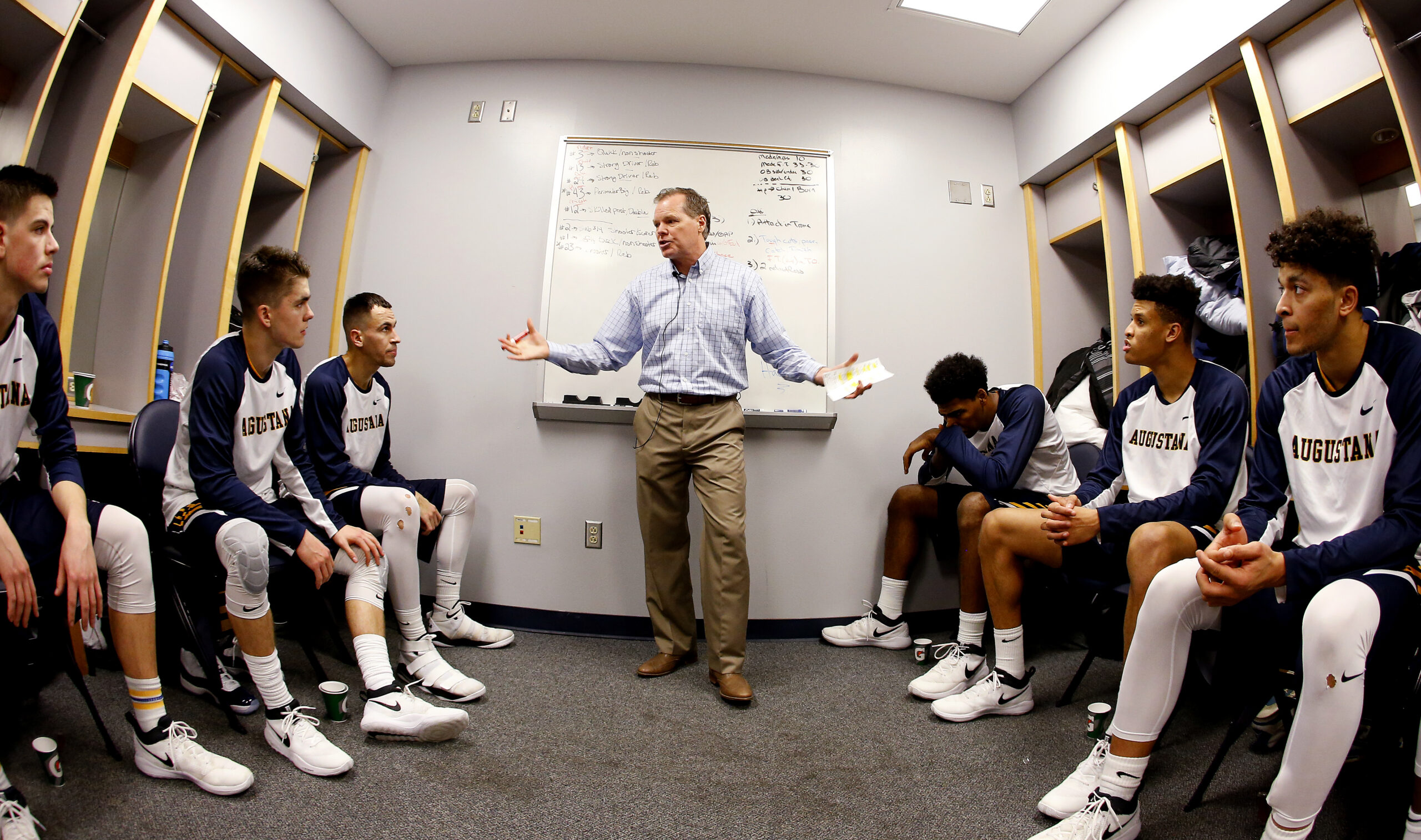
Words of Advice
When Giovanine talks with men who are going through a similar diagnosis, his first response is to tell them that they are going to be OK. Then he tells them to make decisions with their partner and find the best doctor for the chosen procedure. And by all means, “Get a second opinion,” he advises.
Giovanine shares personal stories of incontinence and sexual function, remaining thankful in the end they were both successful. “Do the exercises the physical therapists suggest before the surgery and after,” he enthusiastically advises.
Since his surgery, Giovanine feels part of a growing group of people who identify as “cancer survivors—veterans of the war—a brother in the fight,” he emphasizes.

The Box at His Door
Sitting on a sun-lit porch, coach Giovanine lifts an eyebrow and chuckles.
“I get a box that shows up at my house every three months with a test kit—I forget all about cancer and then the box is there,” he says. When the box arrives, Giovanine says he gets a little sick to his stomach because the box contains a blood draw kit which will tell him if his cancer is back. He goes to the local lab and most times—24 hours later—the results are in. “Getting the box is tough,” Giovanine says.
Fueled by his zest for learning more about prostate cancer, Giovanine appears in good spirits, smiling often. “I keep coming back to the better educated you are about it—the less fearful you are because you know what’s going on, you understand—that’s my approach,” he concludes.
Rebecca Thompson is a public artist and Ph.D. student at the University of Arizona interested in the intersections of health and the arts with a minor in journalism. Learn more about Rebecca by visiting her website at rebeccathompsonsculpture.com.

